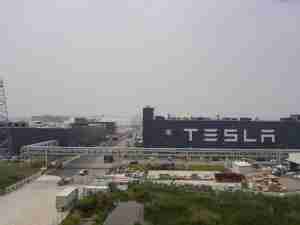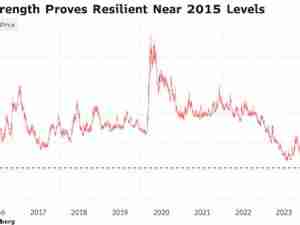Some of the most prominent engines of the global economy are showing signs of trade war fatigue. The next big concern is that the drivers will grow weary, too.
Just ask those at ground zero of U.S. trade with China.
“Clearly for the last year there certainly has been indecision, uncertainty in the industry,” Mario Cordero, executive director at the Port of Long Beach in California, said in an interview with Bloomberg Television. “You’re now seeing actually the impact.”
The latest examples:
- Caterpillar, a bellwether of the world’s industrial economy, just reported a 6% drop in third-quarter revenue compared with a year earlier. Jim Umpleby, CEO of the Illinois-based maker of construction machinery, said that in the final three months of the year, “we now expect end-user demand to be flat and dealers to make further inventory reductions due to global economic uncertainty.”
- Hasbro shares tumbled 17% on Tuesday after the Rhode Island-based toy maker reported weaker-than-expected profit largely blamed on tariffs that aren’t even in place yet. “If the December 15th tariffs were to go into effect, we would take pricing to again protect our gross margin, and those price increases would be passed along to consumers,” CEO Brian Goldner said. “We don’t see tariffs being enacted two weeks before Christmas is giving the consumer the optimal holiday season.”
- Harley-Davidson said tariffs were a $21.6 million drag on third-quarter earnings, almost double the impact of a year ago. The Wisconsin-based motorcycle maker is on track to start producing bikes in Thailand that will be shipped to the European Union, a workaround the company started putting in motion last year. CFO John Olin said “we’re looking at our business with the abundance of caution necessary in an environment like this.”
- Polaris, the Minnesota-based maker of off-road vehicles, motorcycles, snowmobiles and boats, has implemented about 60 tariff-mitigation initiatives that have combined to reduce the impact on its bottom line by about $5 million this year, CEO Scott Wine said. He cited efforts to shift sourcing of some parts out of China and negotiate with suppliers as examples.
As U.S. companies try to cope, worries are growing that household spending will be next to suffer if the tariff fights drag on.
“Going forward, it’s going to be the impact on the American consumer, because again, consumption is what drives our GDP,” said Cordero, who oversees one of the busiest ports in the U.S. “If that’s impacted, then of course we are going to see an impact on the economy.”








